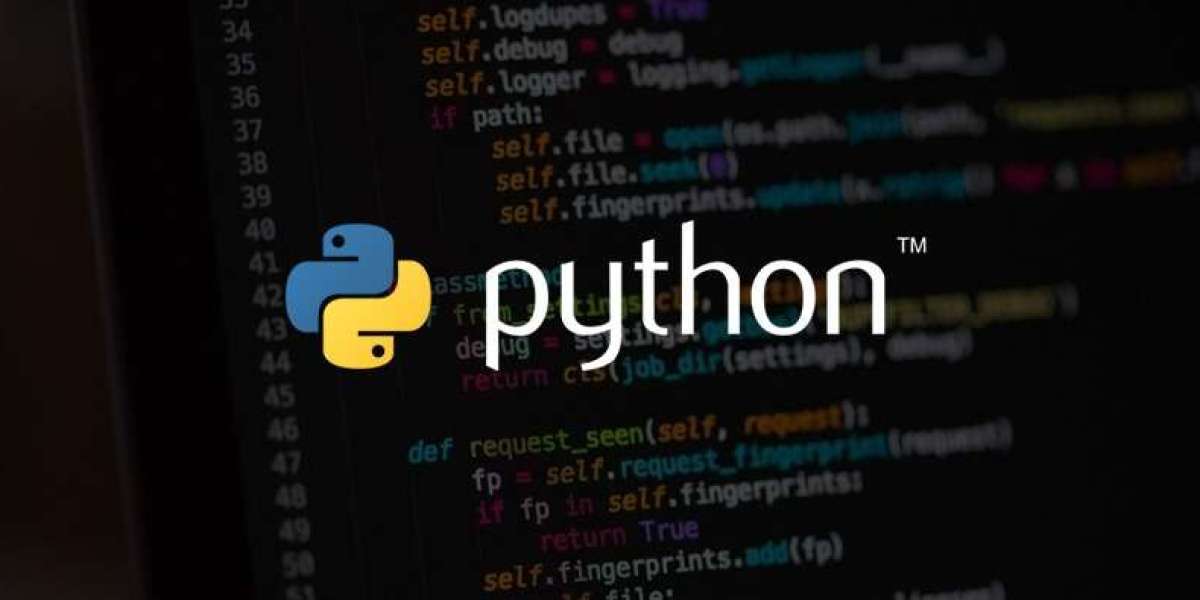Python is an increasingly popular language for mobile app development due to its powerful features, simplicity, and versatility. It's becoming the go-to language for many developers who want to create a mobile application that is both robust and easy to maintain. In this blog post, we'll discuss the top reasons why you should consider Python as your language of choice when developing your next mobile application. We'll look at how Python can help you build a reliable, secure, and feature-rich application that will meet your users' needs. With the right tools, knowledge, and guidance, you can create a mobile app that takes advantage of Python's advantages and sets you apart from the competition.
Why Python is a Good Choice for Mobile App Development
Python is a good choice for mobile app development for several reasons. Firstly, Python is known for its powerful features, which allow developers to build robust and feature-rich applications. With Python, you have access to a vast array of libraries and frameworks that can simplify the development process and help you create innovative and efficient mobile apps.
Secondly, Python's simplicity makes it an ideal language for beginners and experienced developers alike. Its clean syntax and easy-to-understand code structure make it easier to write and maintain code, reducing the time and effort required for app development. This simplicity also enhances collaboration among team members, enabling seamless communication and efficient code sharing.
Another reason to choose Python for mobile app development is its versatility. Python can be used for various purposes, such as building web applications, data analysis, machine learning, and more. This flexibility allows developers to leverage their existing Python skills and knowledge for mobile app development, saving time and resources.
Furthermore, Python's large and active community ensures continuous support, updates, and improvements to the language. You can find extensive documentation, tutorials, and online forums to help you overcome any challenges you may face during app development.
Overall, Python's powerful features, simplicity, and versatility make it an excellent choice for mobile app development. By choosing Python, you can build reliable, secure, and feature-rich applications that will meet your users' needs and set you apart from the competition.
Advantages of Using Python in Mobile Development
Python offers several advantages for mobile development, making it a popular choice among developers. One of the key advantages is its extensive collection of libraries and frameworks. Python has a vast ecosystem of tools that can simplify and accelerate the development process. These libraries cover a wide range of functionalities, such as user interface design, data processing, networking, and more. With Python, developers can leverage these resources to build feature-rich and robust mobile applications.
Another advantage of using Python for mobile development is its simplicity. Python's clean and readable syntax allows developers to write code quickly and efficiently. This simplicity makes it easier to understand and maintain code, reducing the time and effort required for app development. Additionally, Python's simplicity enhances collaboration among team members, promoting efficient communication and code sharing.
Python's versatility is yet another advantage for mobile development. Python can be used for various purposes, from building web applications to data analysis and machine learning. This flexibility allows developers to leverage their existing Python skills and knowledge for mobile app development, saving time and resources.
Furthermore, Python's large and active community provides continuous support and updates. The community offers extensive documentation, tutorials, and online forums where developers can find help and guidance. This support ensures that developers can overcome any challenges they may face during the app development process.
In summary, Python's extensive library collection, simplicity, versatility, and strong community support make it an advantageous choice for mobile app development. Developers can take advantage of these benefits to create reliable, secure, and feature-rich applications that meet their users' needs.
How Python Fits into the Mobile App Development Ecosystem
Python plays a significant role in the mobile app development ecosystem. With its versatility and robustness, Python fits seamlessly into the process, providing developers with a wide range of tools and capabilities.
One of the ways Python fits into the mobile app development ecosystem is through its integration with various frameworks. Python-based frameworks like Kivy, BeeWare, and PySide offer developers a set of pre-built components and modules that can accelerate app development. These frameworks provide a foundation for building cross-platform apps, enabling developers to create applications that run on multiple operating systems with minimal code changes.
Additionally, Python's compatibility with other programming languages is another factor that contributes to its place in the ecosystem. Python can be easily integrated with other languages like Java, Objective-C, and Swift, allowing developers to combine the power of different languages and leverage existing code libraries.
Python's ability to handle complex tasks, such as data analysis and machine learning, also makes it valuable in the mobile app development ecosystem. With libraries like NumPy, Pandas, and TensorFlow, developers can integrate sophisticated data processing and predictive capabilities into their mobile apps, providing users with personalized and intelligent experiences.
Moreover, Python's popularity and active community further solidify its position in the ecosystem. The vast community of Python developers contributes to the development of libraries, frameworks, and tools, ensuring that there is continuous support and improvement for Python-based mobile app development.
In summary, Python's versatility, compatibility with other languages, and ability to handle complex tasks make it an integral part of the mobile app development ecosystem. Its seamless integration with frameworks, support for cross-platform development, and powerful libraries make it a go-to choice for developers looking to build robust and innovative mobile applications.
Also Read:- Complete Guide To Develop An App Using Python
Popular Python-Based Frameworks for Mobile App Development
When it comes to mobile app development with Python, there are several popular frameworks that can greatly simplify and expedite the development process. These frameworks offer a wide range of pre-built components and modules that can save you time and effort, allowing you to focus on creating the best user experience possible.
One such framework is Kivy, a powerful open-source Python library that enables developers to build cross-platform applications. Kivy provides a comprehensive set of tools and widgets for creating intuitive user interfaces, making it ideal for mobile app development. With Kivy, you can easily create apps that run seamlessly on multiple operating systems, from Android to iOS and beyond.
Another popular Python-based framework is BeeWare, which takes a unique approach to app development. BeeWare allows developers to write apps in Python and then deploy them natively on different platforms, including mobile. This means you can use the same codebase to create apps for Android, iOS, Windows, and more, saving you time and effort in the long run.
PySide is another powerful framework that leverages Python's simplicity and versatility for mobile app development. PySide allows you to create cross-platform applications with a native look and feel, providing a seamless user experience on different devices and operating systems.
These are just a few examples of the popular Python-based frameworks available for mobile app development. Each framework has its own unique features and advantages, so it's important to choose one that best suits your specific project requirements. With the right framework, you can unlock the full potential of Python and create exceptional mobile apps that users will love.
Best Practices for Using Python in Mobile App Development
When it comes to using Python in mobile app development, there are some best practices that can help you make the most out of this powerful language. Here are some key guidelines to follow:
- Plan and organize your code: Before diving into development, take the time to plan and structure your codebase. This will make it easier to maintain and update your app in the long run. Use design patterns, such as Model-View-Controller (MVC), to separate your code into logical components and ensure a clean and scalable architecture.
- Leverage Python libraries and frameworks: Python has a vast ecosystem of libraries and frameworks that can significantly speed up your development process. Take advantage of these tools to handle common tasks, such as user interface design, data processing, and networking. This will save you time and effort and allow you to focus on the unique aspects of your app.
- Write clean and readable code: Python's clean syntax and code structure make it easy to write clean and readable code. Follow Python's PEP 8 style guide to ensure consistency in your codebase. Use meaningful variable names, proper indentation, and clear comments to enhance code readability. This will make it easier for you and other developers to understand and maintain the code.
- Test thoroughly: Testing is a critical aspect of mobile app development. Write unit tests to verify the functionality of individual components and integration tests to ensure that different parts of your app work well together. Automate your tests using frameworks like Pytest or unittest to catch bugs early and ensure the stability of your app.
- Optimize performance: Mobile apps need to perform well to provide a smooth user experience. Profile your code to identify bottlenecks and optimize critical sections for better performance. Use tools like cProfile and line_profiler to measure the execution time of different parts of your code and optimize accordingly.
- Secure your app: Mobile apps often deal with sensitive user data, so it's crucial to prioritize security. Follow best practices for mobile app security, such as encrypting data, implementing secure authentication mechanisms, and using HTTPS for network communication. Regularly update your dependencies and libraries to patch any security vulnerabilities.
- Continuous integration and deployment: Automate your build, testing, and deployment processes using continuous integration (CI) and continuous deployment (CD) tools. This ensures that changes to your code are thoroughly tested and deployed in a consistent and efficient manner. Use tools like Jenkins, Travis CI, or CircleCI to automate these processes.
Good To Read:- Best Possibilities Of App Development In Python
Real-world Examples of Successful Python-Powered Mobile Apps
Python has been successfully used to develop numerous mobile apps across various industries. Let's take a look at some real-world examples of Python-powered mobile apps that have achieved great success.
- Instagram: One of the most popular social media platforms, Instagram was built using Python. Python's simplicity and flexibility allowed the development team to rapidly prototype and iterate new features, leading to its immense popularity.
- Spotify: The popular music streaming service Spotify also relies heavily on Python. Python's extensive library collection and its ability to handle complex data processing tasks enabled Spotify to provide personalized music recommendations and create engaging user experiences.
- Pinterest: Another well-known social media platform, Pinterest, leverages Python for its backend infrastructure. Python's robustness and scalability make it an ideal choice for handling the high traffic and data-intensive nature of the platform.
- Dropbox: The widely used file hosting service Dropbox utilizes Python extensively for its backend operations. Python's ease of use and extensive library collection allowed Dropbox to build a reliable and secure cloud storage platform.
- YouTube: Python plays a significant role in powering YouTube's backend infrastructure. From handling video uploads and processing to managing user interactions, Python's versatility and scalability enable YouTube to deliver seamless streaming experiences to millions of users.
These examples demonstrate the capabilities of Python in building successful and feature-rich mobile apps. Python's powerful features, simplicity, and vast library collection make it a reliable choice for developers looking to create innovative and impactful mobile applications.
Conclusion
In conclusion, Python is an excellent choice for mobile app development due to its powerful features, simplicity, and versatility. With Python, developers have access to a vast array of libraries and frameworks that can simplify the development process and help create innovative and efficient mobile apps. Python's clean syntax and easy-to-understand code structure make it easier to write and maintain code, reducing time and effort. Its versatility allows developers to leverage their existing Python skills and knowledge for mobile app development, saving valuable resources.
Python fits seamlessly into the mobile app development ecosystem through its integration with various frameworks, its compatibility with other programming languages, and its ability to handle complex tasks such as data analysis and machine learning. Popular Python-based frameworks like Kivy, BeeWare, and PySide provide pre-built components and modules that expedite app development and allow for cross-platform functionality.
By following best practices, such as planning and organizing code, leveraging Python libraries and frameworks, writing clean and readable code, testing thoroughly, optimizing performance, and prioritizing app security, developers can create reliable, secure, and feature-rich mobile applications.
Overall, Python's advantages, extensive library collection, seamless integration with frameworks, and real-world success stories demonstrate why it is an ideal choice for mobile app development. If you're looking to create your next mobile app, consider hiring dedicated developers in India with expertise in Python to unlock the full potential of this powerful language.








